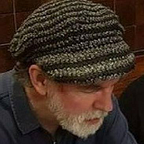A Bayes’ Theorem Lie Detector
Your help is requested
Dear Readers,
Here is a neat application of Bayes’ Theorem. Imagine that a professor gives her students an exam. She wants to know how likely it is than any of them cheated. But she can’t just ask them. Can she even expect students to be report honestly on an anonymous survey? (Is it really anonymous? Really?)
I recently posted this on Reddit:
I am working on an article on Bayes Theorem and statistical significance, and I am asking for your help, dear Redditors! Here’s what I need you to do:1. Flip a coin.2. If the coin turns up HEADS, then write HEADS in the comments.3. If the coin turns up TAILS then do this: Answer the question (in your mind) “Have I ever cheated on a test in school?”
a)If the answer is YES, then, then write HEADS in the comments.
b)If the answer is NO, then write TAILS in the comments.If users were to report only the result of the coin toss, the comments should be split evenly between HEADS and TAILS.However, the results in the comments will be skewed toward HEADS. I will then apply Bayes’ Theorem to determine the percentage of people who have cheated.Writing HEADS is not a confession of cheating, because of the random element.Thanks for your help!
If MathAdam readers would like to participate, please comment below this article on the Medium website.
Is this experiment scientific? Weeeellllll…. For one thing, I realize Medium readers don’t share the anonymity of Redditors. (But remember, writing HEADS admits to nothing!)
Thanks for your help! Please share this email/article liberally. (There’s no paywall.) It’ll be fun to share the results.
Adam.
